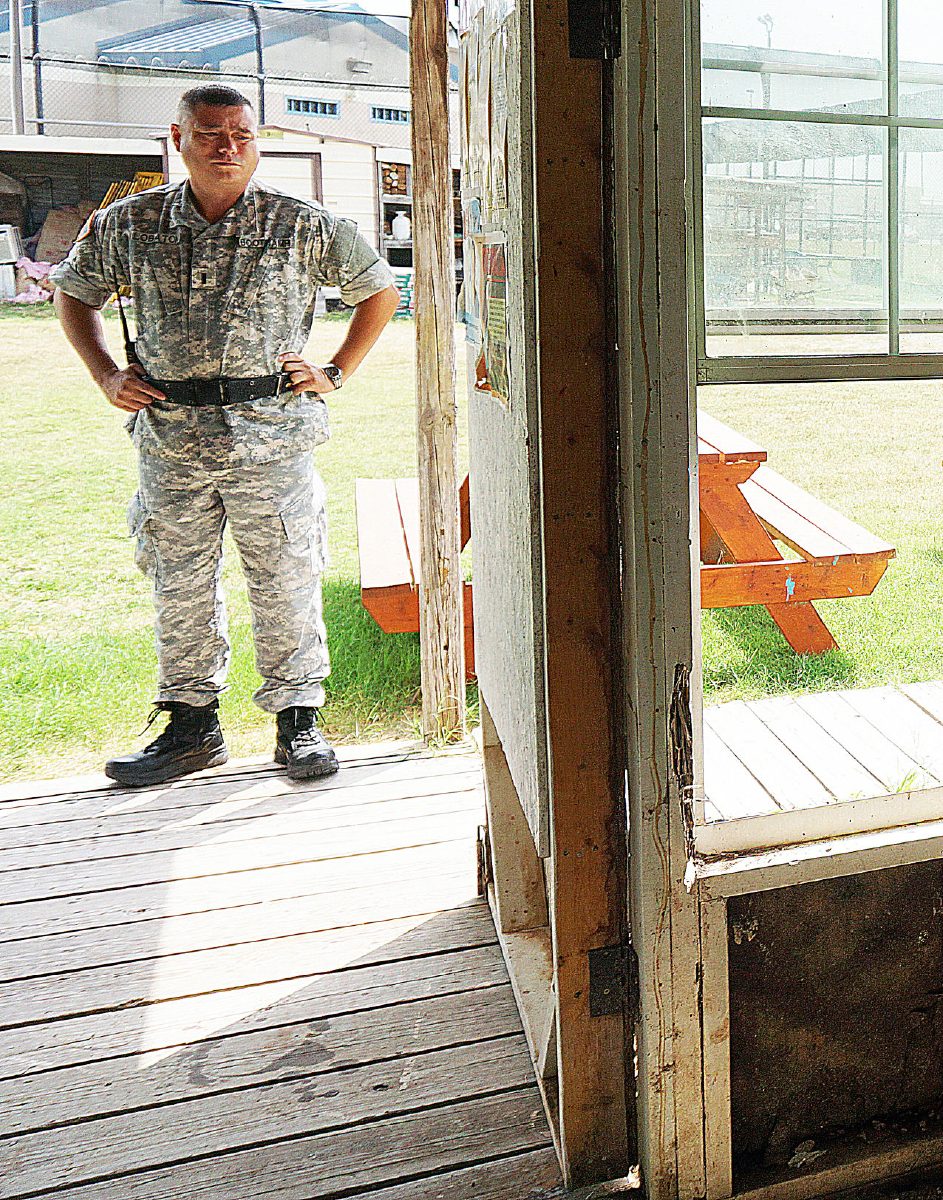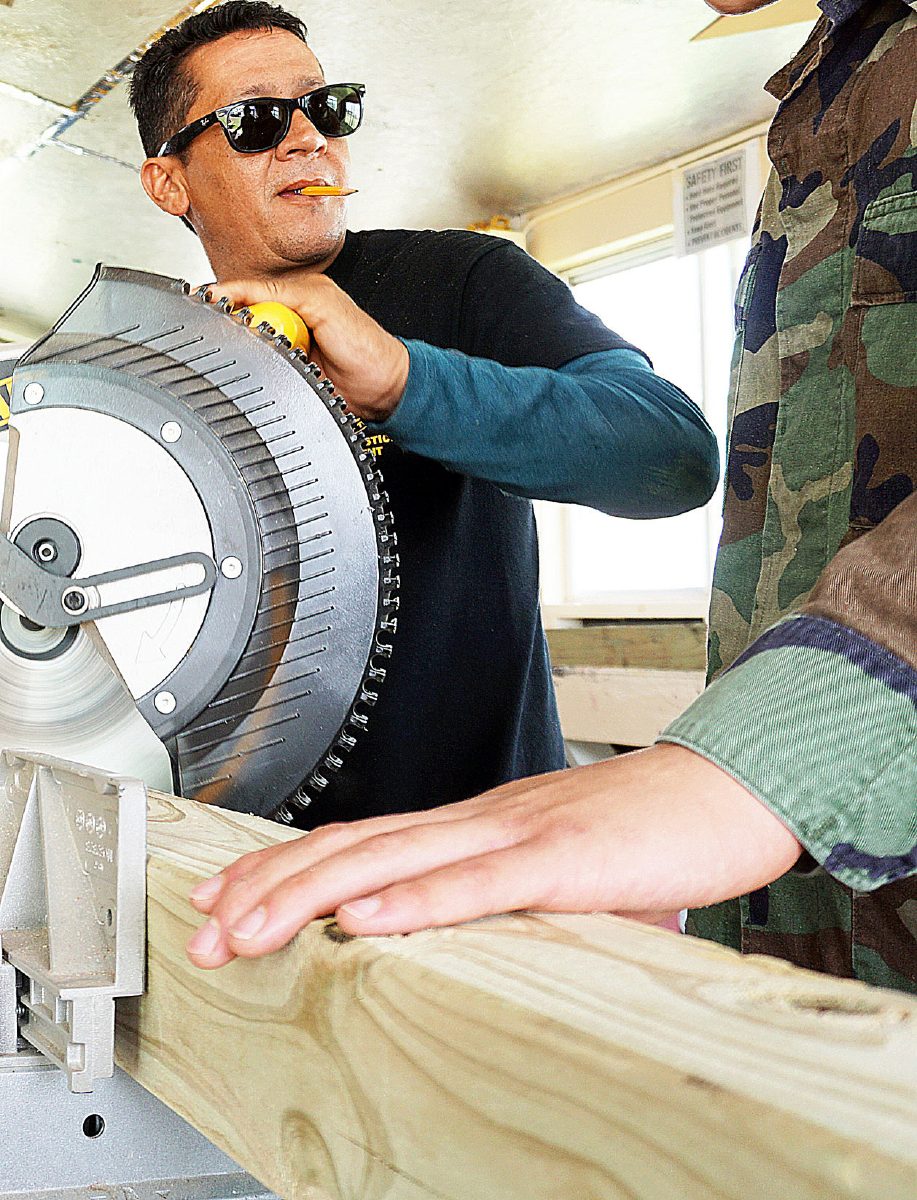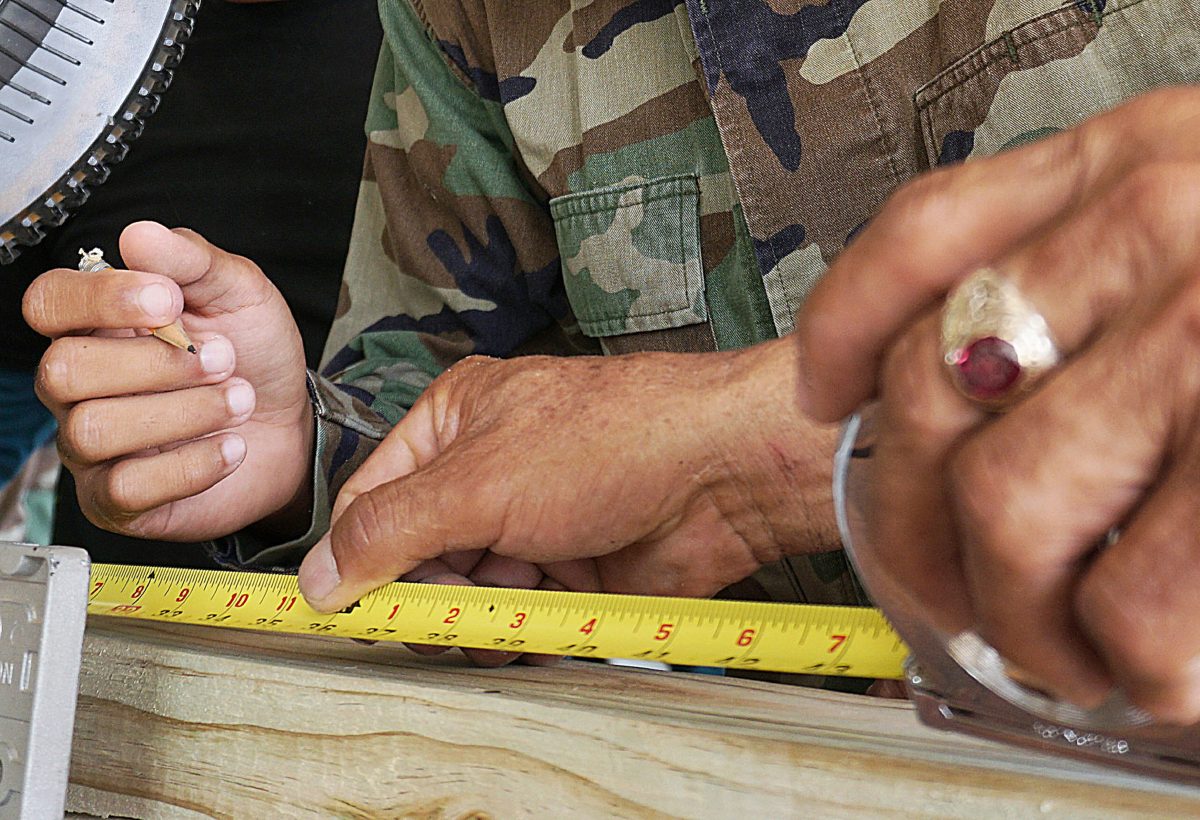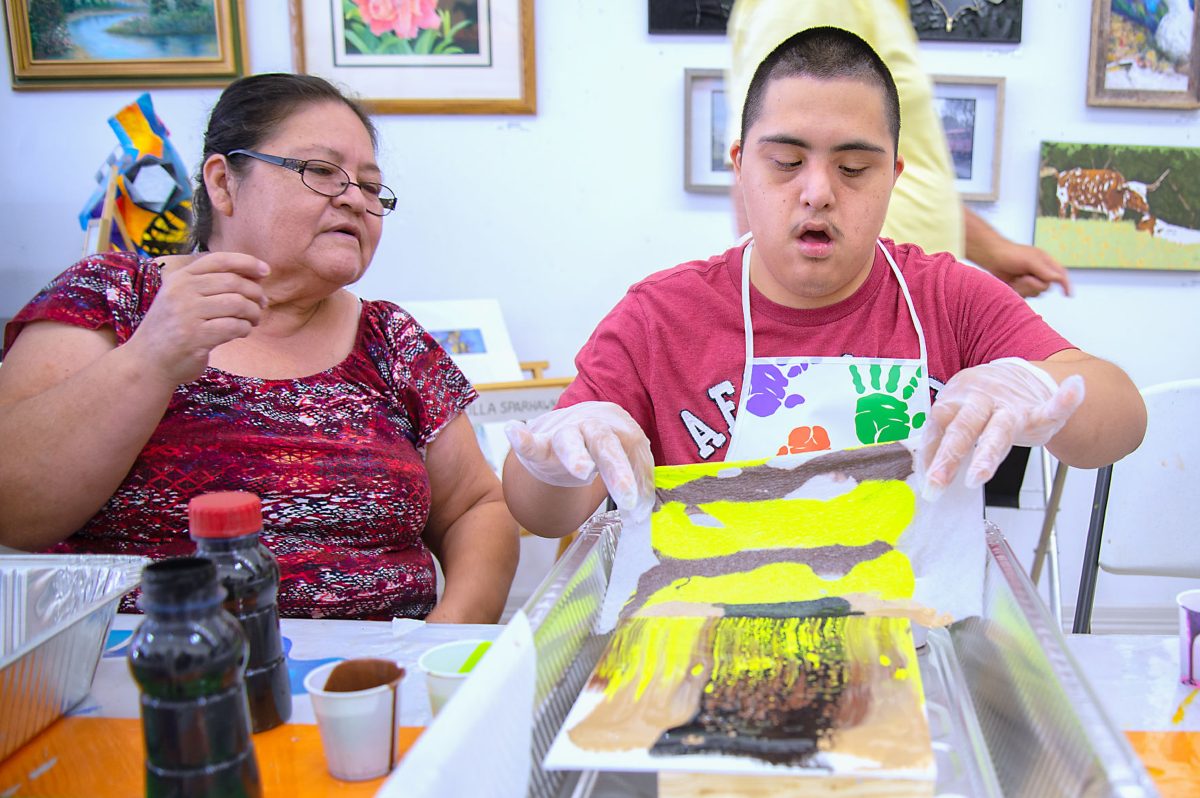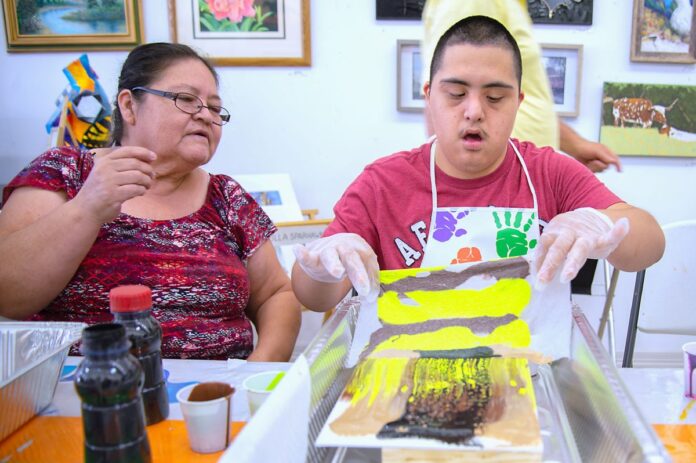
SAN BENITO — The sound of a whirring table saw pierced the otherwise placid afternoon at the Darrell B. Hester Juvenile Justice Center, where cadets in the residential boot camp worked with instructors in the woodshop to build a picnic table.
They donned hardhats and safety goggles before starting on the project, one of more than 100 tables and eight lifeguard towers on which cadets were working to donate to the Cameron County Parks and Recreation Department.
The building construction skills program implemented for juveniles is a unique approach to their rehabilitation, officials said, with the intention of giving them the ability to earn a living and grow self-esteem outside of the criminal activities that landed them in custody.
Rose Gomez, chief executive officer of juvenile detention in Cameron County, said the program is part of “progressive sanctions” for youth based on the severity of their offenses. Judges may remand children who violate their probation to the justice center’s residential boot camp or daytime program, where they go to school, receive counseling and learn construction skills.
Most of the children violate their parole through substance use, she added.
“There are so many underlying circumstances that prevent them from succeeding,” Gomez said, “so we want to be that constant and supervision because that’s what we’ve been enlisted to do.”
The construction program is now more than 10 years old, and cadets have helped do everything from build lifeguard towers to homes. Because many have lacked parental involvement, Gomez said, the program is an introduction to the very concept of community service.
“It provides them an opportunity to do something other than counseling, something they can get involved in,” she said.
David Sanchez, special projects administrator for the Cameron County Juvenile Justice Department, was director of the residential boot camp for 10 years. He said he still runs into former cadets at Home Depot when they go on to work on their own construction projects. Graduates are proud to have the skills to even fix things around their parents’ house, he added.
“It introduces them to the world of work,” Sanchez said. “We work because somewhere along the way, mom or dad told you, ‘Today, you’re going to cut the yard.’ A lot of these kids, once a week they’re with grandma, then mom, then dad, then locked up, then in foster care.”
Back at the woodshop, Cadet Zero, a gentle sand-colored dog that has lived at the facility since he was a pup, flanked them as they entered but opted to watch from the shade as cadets measured and cut lumber under the supervision of instructors Pedro Alvarez and Enrique Rodriguez.
Among the cadets was Eric, a soft-spoken 16-year-old who bookended his sentences with honorifics.
“To be honest, when I first started, I wasn’t into it. I didn’t want to be here because I’ve been in other programs,” he said. “This is the only one that really changed me. I have more knowledge and more wisdom.”
Eric said he had time during the program to reflect on his family and pursing his GED. He’s also got college in his sights and wants a career in the Border Patrol.
He was “in the streets” before the boot camp, Eric said, and he recalled how if his mom asked him to do something like cut the lawn, he brushed her off. He didn’t know how, he said.
“Those men, they taught me a lot, ma’am,” he said of the instructors. If he doesn’t pass his GED exam during the boot camp, “I’m going to try and get a higher score to get college-ready.”
Jose, 16, said his skills have come a long way and now include table building, house framing and properly burning wood for a darker finish. He wasn’t exactly thrilled about the program at first.
“I thought, ‘Nah, this is going to be boring,’ or something like that. Then you get used to it, and you want to do it every day,” he said. “It keeps you occupied.”
Jose plans to get a job using his construction skills after the program and said he’s glad he can work at something he enjoys. It’s all thanks to his instructors, he said, who are different from teachers he experienced before.
“Sometimes the teachers just told me, ‘If you do it, you do it. If you don’t, you don’t,’” Jose said. “Here they support you to go on, go forward, don’t stop.”
Sanchez said visitors have come from places like Bell County and outside Texas to observe the program. After being interviewed by a French documentary crew about the construction program, a friend called to say the film had aired on television in Belgium.
He said the program has an approximately 70 percent success rate, meaning most cadets who participate in the construction program don’t enter the juvenile justice system again.
“They are resilient, they are trying to do the best they can,” Sanchez said of the cadets. “They don’t have the things you or I had.”

